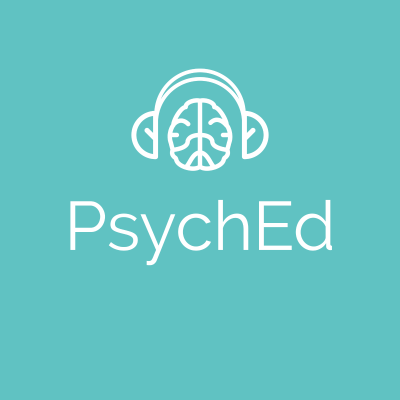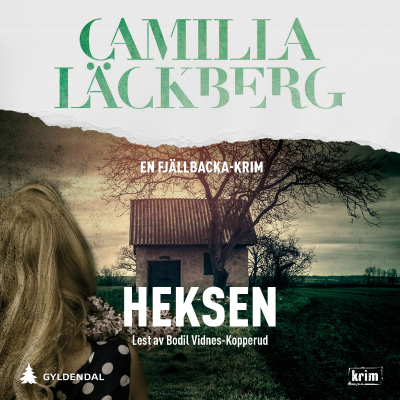
PsychEd: educational psychiatry podcast
Podkast av PsychEd
This podcast is written and produced by psychiatry residents at the University of Toronto and is aimed at medical students and residents. Listeners will learn about fundamental and more advanced topics in psychiatry as our resident team explore these topics with world-class psychiatrists at U of T and abroad.
Prøv gratis i 7 dager
99,00 kr / Måned etter prøveperioden.Avslutt når som helst.
Alle episoder
71 EpisoderWelcome to PsychEd, the psychiatry podcast for medical learners, by medical learners. This is our inaugural book club episode centred around the book Mind Fixers by Anne Harrington. Mind Fixers is by the Harvard historian Anne Harrington, and came out from Norton in 2022. It reframes the “biological turn” in later twentieth century psychiatry with a history of the discipline from the later nineteenth century forward. Harrington argues that the biological turn had relatively little to do with new scientific advances, and came instead from a need to separate psychiatry from the increasingly unpopular public image of the discipline’s previous, “Freudian” age. To make this argument, she starts with the anatomic research of turn-of-the-century figures like Kraepelin, and how this generally failed to explain important mental illnesses. She traces the emergence of “Freudian” or psychological approaches to mental illness to the high point of their dominance in the mid twentieth century, and then their decline, as their inadequacy with respect to things like bipolar disorder and schizophrenia became increasingly clear, and their emphasis on childhood experience stigmatized families. Biological psychiatry is then a way to restore the fields’s respectability as as branch of medicine, but according to Harrington, there is not much transformative innovation to go along with this rebrand; and she emphasizes that the psychopharmacology revolution which gave us the first antipsychotics, MAOIS, tricyclics, and the receptor model of mental illness, actually happened during the heyday of psychoanalysis. The members of our team involved in this discussion are: Sara Abrahamson - MS2 at the University of Toronto Dr. Kate Braithwaite - Medical Doctor from South Africa Dr. Wendy MacMillan-Wang - PGY4 psychiatry resident at the University of Manitoba Dr. Alastair Morrison - PGY1 psychiatry resident at McMaster University Dr. Gaurav Sharma - Staff psychiatrist working in Nunavut, Canada This episode was edited by Dr. Angad Singh - PGY1 psychiatry resident at the University of Toronto Our discussion was structured around four themes: (03:15) - Psychiatry and Economic Incentives (19:33) - Psychiatry and Parenting (28:40) - Biological Psychiatry and its Alternatives (52:05) - Psychiatry and Social Control If you enjoyed this episode, consider listening to our episodes about: History of Psychiatry with Dr. David Castle [https://www.psychedpodcast.org/blog/history] Critical Psychiatry with Dr. Elia Abi-Jaoude and Lucy Costa [https://www.psychedpodcast.org/blog/criticalpsych] For more PsychEd, follow us on Instagram (@psyched.podcast [https://www.instagram.com/psyched.podcast/]), X (@psychedpodcast [https://twitter.com/psychedpodcast]), and Facebook (PsychEd Podcast [https://www.facebook.com/PsychEdPodcast]). You can provide feedback by email at psychedpodcast@gmail.com [psychedpodcast@gmail.com]. For more information, visit our website at psychedpodcast.org [http://psychedpodcast.org/].
Welcome to PsychEd, the psychiatry podcast for medical learners, by medical learners. This primer covers the differential diagnosis of dementia. Hosts: Dr. Alastair Morrison (PGY-1) and Dr. Angad Singh (PGY-1) Audio editing by: Dr. Angad Singh (PGY-1) Resources: * MoCA: https://dementia.talkbank.org/protocol/materials/MOCA.pdf [https://dementia.talkbank.org/protocol/materials/MOCA.pdf] * MMSE: https://meded.temertymedicine.utoronto.ca/sites/default/files/assets/resource/document/mini-mental-state-examinationmmse.pdf [https://meded.temertymedicine.utoronto.ca/sites/default/files/assets/resource/document/mini-mental-state-examinationmmse.pdf] * Beers Criteria: American Geriatrics Society 2023 updated AGS Beers Criteria® for potentially inappropriate medication use in older adults [https://agsjournals.onlinelibrary.wiley.com/doi/epdf/10.1111/jgs.18372] * PsychEd Episode 49: Dementia Assessment with Dr. Lesley Wiesenfeld [https://www.psychedpodcast.org/blog/dementia] References: * American Psychiatric Association. (2013). Diagnostic and statistical manual of mental disorders (5th ed.). https://doi.org/10.1176/appi.books.9780890425596 [https://doi.org/10.1176/appi.books.9780890425596] * Francis, J. & Young, B. (2022). Diagnosis of delirium and confusional states. UpToDate. Retrieved January 31, 2025, from https://www.uptodate.com/contents/delirium-and-acute-confusional-states-prevention-treatment-and-prognosis [https://www.uptodate.com/contents/delirium-and-acute-confusional-states-prevention-treatment-and-prognosis] * Larson, E. B. (2022). Evaluation of cognitive impairment and dementia. UpToDate. Retrieved January 31, 2025, from https://www.uptodate.com/contents/evaluation-of-cognitive-impairment-and-dementia [https://www.uptodate.com/contents/evaluation-of-cognitive-impairment-and-dementia] * PsychDB. (2022, Oct 3). Introduction to Dementia. Retrieved January 31, 2025, from https://www.psychdb.com/geri/dementia/home [https://www.psychdb.com/geri/dementia/home] * PsychDB. (2024, Feb 1). Delirium. Retrieved January 31, 2025, from https://www.psychdb.com/cl/1-delirium [https://www.psychdb.com/cl/1-delirium] * PsychDB. (2024, Feb 9). Alzheimer’s Disease. Retrieved January 31, 2025, from https://www.psychdb.com/geri/dementia/alzheimers [https://www.psychdb.com/geri/dementia/alzheimers] * PsychDB. (2023, Oct 12). Vascular Dementia. Retrieved January 31, 2025, from https://www.psychdb.com/geri/dementia/vascular [https://www.psychdb.com/geri/dementia/vascular] * PsychDB. (2024, Jan 23). Frontotemporal Dementia. Retrieved January 31, 2025, from https://www.psychdb.com/geri/dementia/frontotemporal [https://www.psychdb.com/geri/dementia/frontotemporal] * PsychDB. (2024, Feb 5). Dementia with Lewy Bodies. Retrieved January 31, 2025, from https://www.psychdb.com/geri/dementia/lewy-body [https://www.psychdb.com/geri/dementia/lewy-body] For more PsychEd, follow us on Instagram (@psyched.podcast [https://www.instagram.com/psyched.podcast/]), Facebook (PsychEd Podcast [https://www.facebook.com/PsychEdPodcast]), and X (@psychedpodcast [https://twitter.com/psychedpodcast]). You can email us at psychedpodcast@gmail.com [psychedpodcast@gmail.com] and visit our website at psychedpodcast.org [http://psychedpodcast.org/].
Welcome to PsychEd, the psychiatry podcast for medical learners, by medical learners. This episode covers ADHD in youth with Dr. Daniel Gorman, an Associate Professor in the Department of Psychiatry at the University of Toronto and a Staff Psychiatrist at The Hospital for Sick Children. Dr Gorman’s clinical and academic interests include ADHD, Tourette syndrome, obsessive-compulsive disorder, child psychopharmacology, psychiatric education, and narrative medicine. He is highly involved in resident teaching and clinical supervision, and from 2014 to 2022 he was the Program Director for the Child and Adolescent Psychiatry subspecialty program at the University of Toronto. Dr. Gorman has given over 85 invited presentations and authored or co-authored over 35 peer-reviewed articles and book chapters, mainly related to childhood neuropsychiatric disorders and their pharmacological management. He also contributed to several Canadian guidelines, including guidelines on cardiac risk assessment before the use of stimulants, management of tic disorders, pharmacotherapy for childhood disruptive and aggressive behaviour, and pharmacogenetic testing for children treated with psychiatric medications. The learning objectives for this episode are as follows: By the end of this episode, the listener will be able to… 1. Review diagnostic criteria for ADHD 2. Describe important considerations in making the diagnosis of ADHD 3. Describe psychosocial aspects of management of ADHD 4. Outline the pharmacological management of ADHD Guest: Dr. Daniel Gorman Hosts: Dr. Kate Braithwaite, Dr. Shaoyuan Wang (PGY-4), Matthew Cho (MS-4) Audio editing by: Dr. Angad Singh (PGY-1) Resources: * CADDRA - Canadian ADHD Resource Alliance: Canadian ADHD Practice Guidelines, 4.1 Edition [https://adhdlearn.caddra.ca/wp-content/uploads/2022/08/Canadian-ADHD-Practice-Guidelines-4.1-January-6-2021.pdf], Toronto ON; CADDRA, 2020. References: * American Psychiatric Association. (2013). Diagnostic and statistical manual of mental disorders (5th ed.). https://doi.org/10.1176/appi.books.9780890425596 [https://doi.org/10.1176/appi.books.9780890425596] * Biederman, J., DiSalvo, M., Fried, R., Woodworth, K. Y., Biederman, I., & Faraone, S. V. (2019). Quantifying the protective effects of stimulants on functional outcomes in attention-deficit/hyperactivity disorder: A focus on number needed to treat statistic and sex effects. Journal of Adolescent Health, 65(6), 784–789. https://doi.org/10.1016/j.jadohealth.2019.06.016 [https://doi.org/10.1016/j.jadohealth.2019.06.016] * Peterson, B. S., Trampush, J., Brown, M., Maglione, M., Bolshakova, M., Rozelle, M., Miles, J., Pakdaman, S., Yagyu, S., Motala, A., & Hempel, S. (2024). Tools for the diagnosis of ADHD in children and adolescents: A systematic review. Pediatrics, 153(4), e2024065854. https://doi.org/10.1542/peds.2024-065854 [https://doi.org/10.1542/peds.2024-065854] * Fedder, D., Patel, H., & Saadabadi, A. (2018). Atomoxetine. StatPearls. Retrieved January 31, 2025, from https://www.ncbi.nlm.nih.gov/books/NBK493234/ [https://www.ncbi.nlm.nih.gov/books/NBK493234/] * Canadian Pediatric Society. (2022). Mental health: Screening tools and rating scales. Canadian Pediatric Society. Retrieved January 31, 2025, from https://cps.ca/mental-health-screening-tools [https://cps.ca/mental-health-screening-tools] For more PsychEd, follow us on Instagram (@psyched.podcast [https://www.instagram.com/psyched.podcast/]), X (@psychedpodcast [https://twitter.com/psychedpodcast]), and Facebook (PsychEd Podcast [https://www.facebook.com/PsychEdPodcast]). You can provide feedback by email at psychedpodcast@gmail.com [psychedpodcast@gmail.com]. For more information, visit our website at psychedpodcast.org [http://psychedpodcast.org/].
Welcome to PsychEd, the psychiatry podcast for medical learners, by medical learners. This episode covers psychotherapy in youth with Dr. Laurence Katz, a professor of child and adolescent psychiatry at the University of Manitoba. Dr. Katz received his medical and adult psychiatric training at the University of Manitoba and his child and adolescent psychiatry training at the Albert Einstein College of Medicine, Bronx N.Y. He is an adjunct scientist at the Manitoba Centre for Health Policy and has published numerous papers using the population health administrative database in mental health outcomes. He has held and been part of numerous grants funded by CIHR, PHAC, and other national funding agencies related to work with First Nations communities. Dr. Katz is widely published in particular in the areas of suicide and suicidal behaviour. His other research interests include Dialectical Behaviour Therapy, pharmacoepidemiology, and implementation of complex interventions. The learning objectives for this episode are as follows: By the end of this episode, the listener will be able to… 1. Outline which psychotherapeutic modalities are commonly used in youth 2. Identify which youth may benefit/should be referred for psychotherapy 3. Discuss important considerations in delivering psychotherapy to youth Guest: Dr. Laurence Katz Hosts: Wendy MacMillan-Wang, Shaoyuan Wang, Kate Braithwaite, and Sara Abrahamson Audio editing by: Angad Singh Show notes by: Kate Braithwaite Interview content: * Introduction - 0:04 * Guest introduction - 00:44 * Learning objectives - 05:25 * Definitions - 06:00 * Types of psychotherapy in youth - 07:44 * Evolution of psychotherapy in youth over time - 13:10 * Psychotherapy in suicide prevention/risk mitigation - 16:24 * Challenges in research: decrease in effect sizes over time - 18:32 * Conditions responding best to psychotherapy - 22:01 * Youth specific modalities - 26:44 * Summary of learning objective 1 - 29:49 * Indications and contraindications - 30:23 * Consent - 37:31 * Group therapy - 39:31 * Summary of learning objective 2 - 46:27 * Differences in psychotherapy in youth compared to adults in practice - 47:10 * Techniques for engagement of youth - 53:32 * Family involvement - 58:21 * Confidentiality - 1:02:39 * Use of mobile apps/internet-based therapies - 1:07:20 * Summary of learning objective 3 - 1:11:17 * Other considerations - 1:12:35 * End credits - 1:16:52 References: * Agostino, H., & Toulany, A. (2023). Considerations for privacy and confidentiality in adolescent health care service delivery. Paediatrics & Child Health, 28(3), 172–183. https://doi.org/10.1093/pch/pxac117 [https://doi.org/10.1093/pch/pxac117] * American Academy of Child and Adolescent Psychiatry. (2019, April). Psychotherapies for children and adolescents: different types. Facts for Families Guide. Retrieved from https://www.aacap.org/AACAP/Families_and_Youth/Facts_for_Families/FFF-Guide/Psychotherapies-For-Children-And-Adolescents-086.aspx [https://www.aacap.org/AACAP/Families_and_Youth/Facts_for_Families/FFF-Guide/Psychotherapies-For-Children-And-Adolescents-086.aspx] * Bailin, A., Cho, E., Sternberg, A., & others. (2023). Principle-guided psychotherapy for children and adolescents (FIRST): Study protocol for a randomized controlled effectiveness trial in outpatient clinics. Trials, 24, Article 682. https://doi.org/10.1186/s13063-023-07717-y [https://doi.org/10.1186/s13063-023-07717-y] * Bhide, A., & Chakraborty, K. (2020). General principles for psychotherapeutic interventions in children and adolescents. Indian Journal of Psychiatry, 62(Suppl 2), S299–S318. * CADDRA - Canadian ADHD Resource Alliance. (2020). Canadian ADHD practice guidelines (4.1 ed.). Toronto, ON: CADDRA. * Christner, R. W., Stewart, J. L., & Mulligan, C. A. (Eds.). (2024). Handbook of cognitive-behavior group therapy with children and adolescents: Specific settings and presenting problems (2nd ed.). Routledge. * Campisi, S. C., Ataullahjan, A., Baxter, J. B., Szatmari, P., & Bhutta, Z. A. (2022). Mental health interventions in adolescence. Current Opinion in Psychology, 48. https://doi.org/10.1016/j.copsyc.2022.101492 [https://doi.org/10.1016/j.copsyc.2022.101492] * Katzman, M. A., Bleau, P., Blier, P., & others. (2014). Canadian clinical practice guidelines for the management of anxiety, posttraumatic stress, and obsessive-compulsive disorders. BMC Psychiatry, 14(Suppl 1), S1. https://doi.org/10.1186/1471-244X-14-S1-S1 [https://doi.org/10.1186/1471-244X-14-S1-S1] * Kendall, P. C., Ney, J. S., Maxwell, C. A., Lehrbach, K. R., Jakubovic, R. J., McKnight, D. S., & Friedman, A. L. (2023). Adapting CBT for youth anxiety: Flexibility within fidelity in different settings. Frontiers in Psychiatry, 14, Article 1067047. https://doi.org/10.3389/fpsyt.2023.1067047 [https://doi.org/10.3389/fpsyt.2023.1067047] * Kernberg, P. F., Ritvo, R., Keable, H., & American Academy of Child an Adolescent Psychiatry (AACAP) Committee on Quality Issues (CQI) (2012). Practice Parameter for psychodynamic psychotherapy with children. Journal of the American Academy of Child and Adolescent Psychiatry, 51(5), 541–557. https://doi.org/10.1016/j.jaac.2012.02.015 [https://doi.org/10.1016/j.jaac.2012.02.015] * Lam, R. W., Kennedy, S. H., Adams, C., & others. (2024). Canadian Network for Mood and Anxiety Treatments (CANMAT) 2023 update on clinical guidelines for management of major depressive disorder in adults: Réseau canadien pour les traitements de l’humeur et de l’anxiété (CANMAT) 2023: Mise à jour des lignes directrices cliniques pour la prise en charge du trouble dépressif majeur chez les adultes. The Canadian Journal of Psychiatry, 69(9), 641–687. https://doi.org/10.1177/07067437241245384 [https://doi.org/10.1177/07067437241245384] * Oetzel, K. B., & Scherer, D. G. (2003). Therapeutic engagement with adolescents in psychotherapy. Psychotherapy: Theory, Research, Practice, Training, 40(3), 215–225. https://doi.org/10.1037/0033-3204.40.3.215 [https://doi.org/10.1037/0033-3204.40.3.215] * Wergeland, G. J., Fjermestad, K. W., Marin, C. E., Haugland, B. S., Bjaastad, J. F., Oeding, K., Bjelland, I., Silverman, W. K., Öst, L. G., Havik, Ø. E., & Heiervang, E. R. (2014). An effectiveness study of individual versus group cognitive behavioral therapy for anxiety disorders in youth. Behaviour Research and Therapy, 57, 1–12. https://doi.org/10.1016/j.brat.2014.03.007 [https://doi.org/10.1016/j.brat.2014.03.007] * Witt, K. G., Hetrick, S. E., Rajaram, G., Hazell, P., Taylor Salisbury, T. L., Townsend, E., & Hawton, K. (2021). Interventions for self-harm in children and adolescents. Cochrane Database of Systematic Reviews, 3, Article CD013667. https://doi.org/10.1002/14651858.CD013667.pub2 [https://doi.org/10.1002/14651858.CD013667.pub2] * Yatham, L. N., Kennedy, S. H., Parikh, S. V., Schaffer, A., Bond, D. J., Frey, B. N., Sharma, V., Goldstein, B. I., Rej, S., Beaulieu, S., Alda, M., MacQueen, G., Milev, R. V., Ravindran, A., O'Donovan, C., McIntosh, D., Lam, R. W., Vazquez, G., Kapczinski, F., McIntyre, R. S., Kozicky, J., Kanba, S., Lafer, B., Suppes, T., Calabrese, J. R., Vieta, E., Malhi, G., Post, R. M., & Berk, M. (2018). Canadian Network for Mood and Anxiety Treatments (CANMAT) and International Society for Bipolar Disorders (ISBD) 2018 guidelines for the management of patients with bipolar disorder. Bipolar Disorders, 20(2), 97–170. https://doi.org/10.1111/bdi.12609 [https://doi.org/10.1111/bdi.12609] For more PsychEd, follow us on Instagram (@psyched.podcast [https://www.instagram.com/psyched.podcast/]), X (@psychedpodcast [https://twitter.com/psychedpodcast]), and Facebook (PsychEd Podcast [https://www.facebook.com/PsychEdPodcast]). You can provide feedback by email at psychedpodcast@gmail.com [psychedpodcast@gmail.com]. For more information, visit our website at psychedpodcast.org [http://psychedpodcast.org/].
Welcome to PsychEd, the psychiatry podcast for medical learners, by medical learners. This is a special episode in a new series — the PsychEd Book Club, a forum where we'll introduce and discuss books of interest to psychiatry learners from a variety of disciplines, moving beyond epidemiology and clinical practice to look at science, history, culture, and more. We'll also invite you to read along and discuss with us as we read! Our book club episodes will start with a short introductory episode (like this one) sharing the book title and why we picked it. A few months later, we plan to release an episode debriefing our thoughts on the book. If there are specific things you want us to talk about, email us at psychedpodcast@gmail.com [psychedpodcast@gmail.com] or reach out to us on social media and we will try to include them in our debrief! The first book we'll be covering is Anne Harrington's Mind Fixers: Psychiatry's Troubled Search for the Biology of Mental Illness [https://www.goodreads.com/book/show/40180010-mind-fixers]. This is a new history of psychiatry, from the later nineteenth century to the present, with a focus on biological explanations and treatments for mental illness — the way that these approaches have gained and lost ground in the profession over time, clashing and collaborating with other understandings. It offers a wide-ranging overview of many defining figures, discoveries, and shifts within modern mental healthcare, unified by a single narrative which gives the book momentum and makes its portraits memorable, and often stinging. It's a polemical history, which prompts us to reconsider some of the field's most automatic self-conceptions, and to recognize the social, political, and cultural forces that have shaped and reshaped it over time. Hosts: Drs Kate Braithwaite, Wendy MacMillan-Wang, Alastair Morrison, and Gaurav Sharma Audio editing by: Dr Angad Singh For more PsychEd, follow us on Instagram (@psyched.podcast [https://www.instagram.com/psyched.podcast/]), X (@psychedpodcast [https://twitter.com/psychedpodcast]), and Facebook (PsychEd Podcast [https://www.facebook.com/PsychEdPodcast]). You can provide feedback by email at psychedpodcast@gmail.com [psychedpodcast@gmail.com]. For more information, visit our website at psychedpodcast.org [http://psychedpodcast.org/].
Prøv gratis i 7 dager
99,00 kr / Måned etter prøveperioden.Avslutt når som helst.
Eksklusive podkaster
Uten reklame
Gratis podkaster
Lydbøker
20 timer i måneden



















